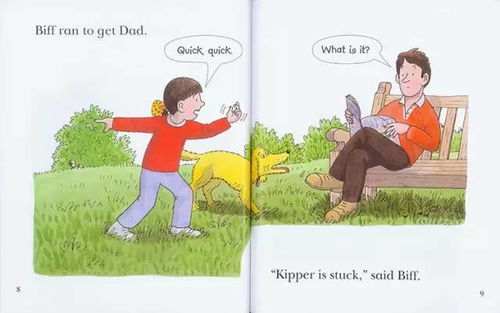How do you say numbers 1 to 15 in English?
1 - one

2 - two

3 - three

4 - four

5 - five
6 - six
7 - seven
8 - eight
9 - nine
10 - ten
11 - eleven
12 - twelve
13 - thirteen
14 - fourteen
15 - fifteen
In the realm of numbers, each digit holds a unique place and significance. From the simplicity of "one" to the more complex "fifteen," learning the English translations of numbers 1 to 15 is a fundamental step in mastering the language of mathematics and everyday communication. Whether you're a student, a teacher, or simply someone who appreciates the universal language of numbers, understanding these basic numerical terms can open doors to a wide range of activities, from counting objects to solving mathematical problems.
The number "one" is represented by the word "one" in English. It's the smallest positive integer and serves as the building block for all larger numbers. In many cultures, one symbolizes unity, individuality, and the beginning of a sequence or set.
Moving on to "two," we encounter the first composite number, made up of the sum of the first two positive integers, one and one. The word "two" is straightforward and essential in expressing pairs, duality, and balance.
"Three" is a prime number, meaning it has no divisors other than one and itself. In English, the word "three" is often used metaphorically to describe something that is a small but significant number, such as "the three musketeers" or "the holy trinity."
The number "four" is another composite number, formed by adding two pairs of ones together. In many cultures, four is considered a symbol of stability, completeness, and harmony, often represented by the four directions (north, south, east, west) or the four seasons.
"Five" is the smallest odd composite number. It's often associated with the human hand, which has five fingers, and thus, it's used metaphorically to signify a small group or a handful of something.
The number "six" is a perfect number, meaning the sum of its divisors (1, 2, and 3) equals the number itself. In English, the word "six" is frequently used in idiomatic expressions like "six of one, half a dozen of the other," meaning that two things are essentially the same.
"Seven" is a prime number and holds a special place in various cultures and religions. It's often seen as a symbol of perfection, mystery, and spiritual awakening. The week, for instance, has seven days, and many ancient civilizations revered the number seven.
"Eight" is another composite number, formed by adding four and four or two sets of twos. In numerology, eight is associated with infinity, abundance, and new beginnings, often represented by the infinity symbol, which is shaped like the number eight on its side.
The number "nine" is the largest single-digit number and the square of three. It's often seen as a symbol of completion and transformation, as it represents the end of one cycle and the beginning of another. In some cultures, nine is considered a lucky number.
"Ten" is a significant milestone in the decimal number system, marking the transition from single digits to double digits. It's the sum of the first four positive integers and is often used metaphorically to signify completeness or a full set, such as "the ten commandments" or "a ten-item checklist."
"Eleven" is the first two-digit prime number. It's often associated with sports and teams, as many sports teams have eleven players on the field at once, such as soccer or rugby.
"Twelve" is a composite number and the first number in the sequence of highly composite numbers, which have more divisors than any smaller number. In English, the word "twelve" is used in various idiomatic expressions, such as "twelve o'clock high" (meaning at the peak of something) or "dozen" (a group of twelve).
"Thirteen" is often considered a lucky number in some cultures, while in others, it's seen as unlucky due to its association with the number of people at the Last Supper before Jesus' crucifixion. In mathematics, thirteen is the sixth prime number.
"Fourteen" is a composite number and the sum of the first six positive integers. It's often used in everyday language to describe quantities, such as "a dozen and two" or "fourteen days."
Finally, "fifteen" is the product of three and five, making it a composite number. In English, the word "fifteen" is used in various contexts, from counting objects to expressing durations, such as "fifteen minutes" or "fifteen years old."
Learning the English translations of numbers 1 to 15 is not just about memorizing words; it's about understanding the mathematical and cultural significance of each number. These numbers form the foundation for more complex calculations, measurements, and expressions. They are the building blocks of our numerical universe, allowing us to communicate ideas, count objects, and solve problems with precision and clarity.
Whether you're a beginner or an advanced learner, mastering the English words for numbers 1 to 15 is a crucial step in developing your language skills. It opens up a world of opportunities, from basic counting and arithmetic to advanced mathematical concepts and everyday communication. So, the next time you find yourself counting objects, measuring distances, or solving a math problem, remember the simple yet powerful words that represent the first fifteen numbers in the English language.
- 上一篇: 戴森HP04空气净化暖风扇:一键启动,畅享清新暖冬
- 下一篇: 手机变身为热点:电脑轻松上网新攻略
-
 How Do You Say 'Look at My Legs' in English?资讯攻略03-01
How Do You Say 'Look at My Legs' in English?资讯攻略03-01 -

-
 How to Say 'I Love You Too' in English资讯攻略01-28
How to Say 'I Love You Too' in English资讯攻略01-28 -
 How Do We Say 'Us and Earth' in English?资讯攻略03-15
How Do We Say 'Us and Earth' in English?资讯攻略03-15 -

-
 How to Say 'Happy Girl' in English资讯攻略12-06
How to Say 'Happy Girl' in English资讯攻略12-06












